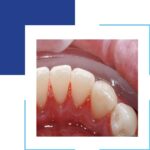
The demand for lubricant additives is increasing across the world. The region accounts for 30% of the global market, primarily due to rising construction, manufacturing, and automobile industries and price sensitivity. As a result, it has become a significant manufacturing hub, and major companies are setting up new plants in this region. Critical factors for their success in this region include cheap labor and abundant feedstocks.
Find here the best chemical suppliers in Dubai.
In addition to improving fuel economy and emissions standards, lubricant additives play a vital role in industrial development. The fourth industrial revolution can also extend to lubricant development and evaluation. New electronic intelligent sensors are now available to measure various performance parameters. With this continuous monitoring, companies can determine which additives are causing the most problems and make necessary corrections. These new technologies can further streamline the lubricant industry by automating the processes.
Lubricant additives can improve the flow and performance of vehicles. Antifoaming agents are insoluble in lubricant and must be dispersed in refined suspension. These agents attach to trapped air bubbles, allowing them to rise to the surface and release the trapped air. The low surface tension of the additives causes the air bubble film to be thin, and the film is lowered.
Other lubricant additives may include anti-wear agents, anti-rust, and corrosion inhibitors. In addition to the standard types, the market for these additives is expanding in developing countries. In addition to emerging economies, increasing construction, industrial, and automotive activities drive the market for these products. With these, many global players are positioning themselves in these regions to take advantage of the low manufacturing costs and high quality of raw materials.
Besides anti-wear agents, lubricant additives may be beneficial for the health of a vehicle. In addition to its anti-wear and corrosion prevention properties, zinc is a valuable antioxidant in lubricant applications. Some alternative additives are available in the market, such as molybdenum and copper. These metals will help protect the engine. The market is growing globally, as it is highly conducive to friction.
Different types of lubricant additives are used in different applications. Aside from anti-wear agents, friction modifiers are mainly used for heavy-duty applications. While friction modifiers are a common type of lubricant, anti-wear agents are preferred for cars with high-speed operations. Aside from anti-wear agents, they have other uses. These compounds can enhance the performance of a lubricant.





